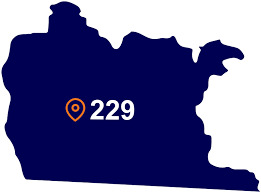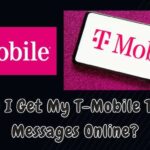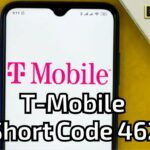The 229 area code—which serves Southwestern Georgia, including Albany, Valdosta, and Thomasville—is one of the US area codes most frequently exploited by robocallers and scammers.
If you are receiving an excessive number of calls from (229) XXX-XXXX, it is highly likely you are being targeted by a “neighbor spoofing” scheme, a common fraud tactic designed to make you believe the call is from a nearby, familiar number.
This article details why the 229 area code is a hot spot for spam, explains the common scams originating from this region, and provides clear steps to block these nuisance calls.
Why Robocallers Target the 229 Area Code
Southwestern Georgia has historically ranked among the top 10 US regions for robocalls per capita, according to industry reports. This high volume of calls is not necessarily because the scammers are physically located in Albany, but rather because they utilize automated technology for “spoofing.”

The Technique: Neighbor Spoofing
Scammers use Caller ID spoofing technology to trick your phone into displaying a number that:
- Matches Your Area Code: If you live in the 229 area code, the call looks local, making you more likely to answer.
- Looks Like a Local Business: The call uses the 229 area code, hoping you associate it with a legitimate local business or government office.
This tactic works because people are generally hesitant to answer calls from unknown, distant area codes. By making the call appear local, scammers can significantly increase their answer rate.
Common Scams Associated with the 229 Code
Robocalls spoofing the 229 area code frequently employ high-pressure tactics centered on common fears:
- Car Warranty Scams: An automated message claims your car warranty is about to expire and pressures you to press a number to speak to an agent.
- Loan/Financial Scams: Callers leave voicemails about a “hardship loan application” or a pending credit card issue that requires you to “call back immediately.”
- Government Impersonation: Callers falsely claim to be law enforcement or a government agency (IRS, Social Security) and threaten you with arrest or fines, often demanding payment via gift cards or wire transfers.
Actionable Steps to Block 229 Spam Calls
Since scammers constantly rotate the last seven digits of a spoofed number, blocking the individual number is often ineffective. The best strategy is to use automated filtering.
- Enable Carrier Spam Filters
Most major carriers offer free, network-level protection:
- Verizon: Download the Call Filter app and ensure Spam Blocking is set to “High Risk” or “Medium and High Risk.”
- T-Mobile: Dial #ONB# (#662#) to activate Scam Block (free on all plans).
- AT&T: Use the AT&T ActiveArmor app to flag and block known nuisance calls.
- Silence Unknown Callers (Smartphone Feature)
This universal setting prevents any call from a number not saved in your contacts from ringing, sending the call directly to voicemail.
- iPhone: Go to Settings > Phone > Silence Unknown Callers.
- Android (Google Phone App): Go to Settings > Spam and Call Screen > Turn on See caller and spam ID.
- Report Every Instance
Report fraudulent calls to government agencies to help law enforcement track down the source:
- File a Complaint: Use the FCC (consumercomplaints.fcc.gov) and the FTC (ReportFraud.ftc.gov) websites.
Frequently Asked Questions (FAQ)
Is every call from the 229 area code a scam?
No. The 229 area code is home to tens of thousands of legitimate businesses and residents in Southwestern Georgia. Calls from local hospitals, schools, or businesses in Albany, Valdosta, or Thomasville are genuine. If you are expecting a call from this region, answer it.
Why do I keep getting calls from different 229 numbers?
This is the definition of robocalling and number rotation. Scammers use automated dialers to quickly move through a block of thousands of phone numbers (often in sequence, e.g., 229-555-0000 to 229-555-9999) to avoid being blocked by simple systems.
Can I block the entire 229 area code?
Some third-party apps allow you to block an entire area code. However, since the 229 area code is a legitimate geographic area, blocking the entire code is not recommended as you may miss important legitimate calls from the region. Focus instead on using carrier-provided spam filters and the “Silence Unknown Callers” feature.
Conclusion
The 229 area code is a domestic US code facing a serious issue with neighbor spoofing and high-volume robocalls. While the code itself is geographically linked to Southwestern Georgia, the nuisance calls are often part of a wide-ranging scam operation. Protect yourself by activating your carrier’s spam-blocking tools and never giving personal information to any unsolicited caller.


